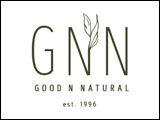Researchers with the University of Manitoba and the Niverville-based Puratone Corporation expect to shed new light on the potential role of zero-tannin faba beans and dried distillers grains with solubles in swine diets.
The University of Manitoba’s National Centre for Livestock and the Environment in partnership with Puratone are evaluating the whole farm impact of including zero-tannin faba beans and dried distillers grains with solubles in swine rations.
The project, which kicked off June 1st, will focus on cost of production, animal performance and carcass quality and manure volume, nutrient content and processing costs.
University of Manitoba Research Associate Dr. Elijah Kiarie notes changing provincial livestock manure management regulations may impact the cost of spreading manure.
By 2013 the farmers will be required to apply manure based on the phosphorus requirement of the crop so it’s therefore very important for the hog producers to balance the savings of feed costs with potential extra costs from increased manure volume or reduced manure value as a result of different feed ingredients.
First of all we are looking at determining the available nutrient and energy profiles in the zero-tannin faba beans and wheat DDGS.
From there we want to apply these values in formulating commercial type swine rations.
Once we have these rations we will feed them to approximately 2,500 pigs and then we will measure the feed intake, the gain, feed efficiency, manure nutrient output, the water intake or use, the carcass quality data as well as ultimately determining the cost of feed per kilogram gained.
Dr. Kiarie notes zero-tannin faba beans can partially or fully replace imported soybean and corn or locally grown ingredients such as peas and canola which will support local pulse crop producers, provide hog producers a less expensive feed ingredient and reduce the importation of nutrients into the province.
Source: Farmscape.Ca



